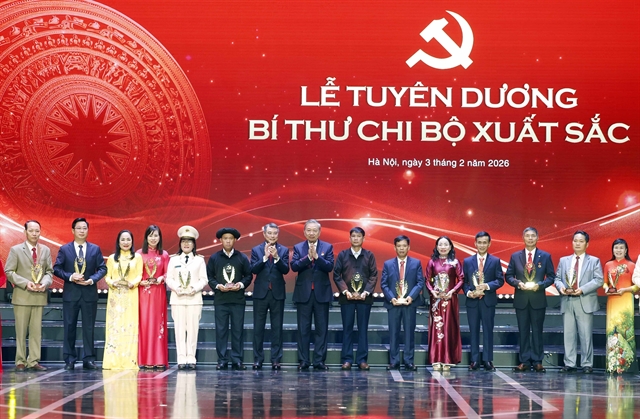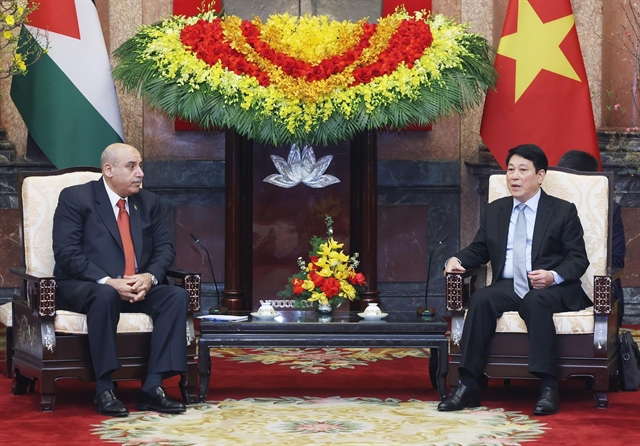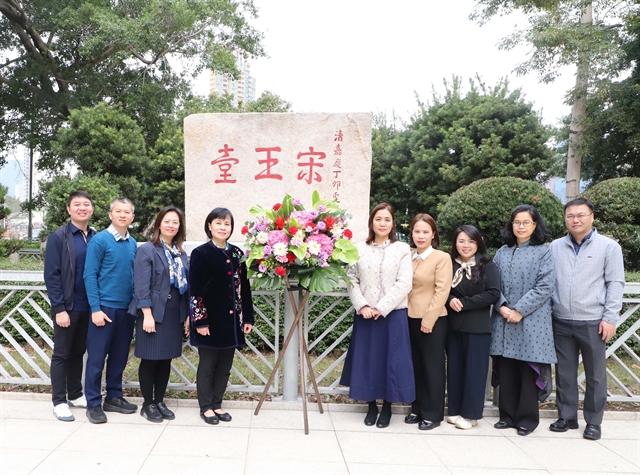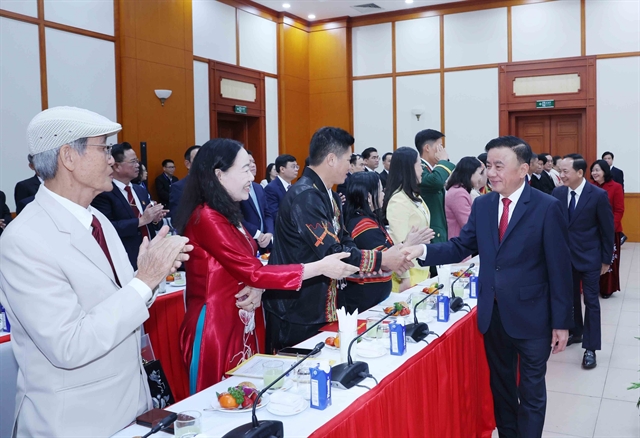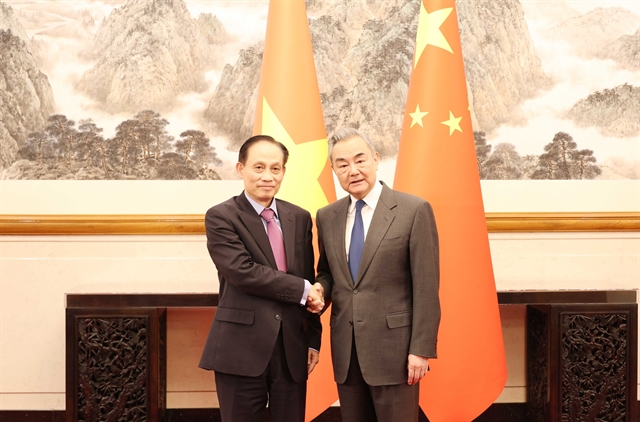 Politics & Law
Politics & Law

Prime Minister Nguyễn Xuân Phúc said Việt Nam is ready to contribute to co-operation in the framework of the Cambodia-Laos-Myanmar-Việt Nam (CLMV) mechanism and proposed specific support for the countries.
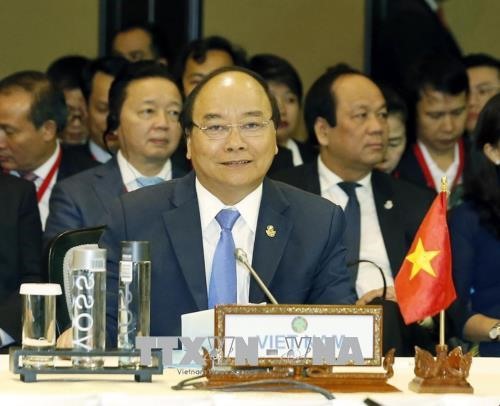 |
| Prime Minister Nguyễn Xuân Phúc attends the CLMV 9. — VNA/VNS Photo Thống Nhất |
BANGKOK — Prime Minister Nguyễn Xuân Phúc said Việt Nam is ready to contribute to co-operation as part of the Cambodia-Laos-Myanmar-Việt Nam (CLMV) mechanism.
Attending the 9th CLMV Summit (CLMV 9) in Bangkok, Thailand on Saturday, Phúc said Việt Nam would help the countries attend trade fairs in Việt Nam, build e-government, improve digital capacity and skills and continue to provide scholarships for Cambodian, Lao and Myanmar students.
He stressed that narrowing the development gap within the ASEAN was significant to socio-economic development in Cambodia, Laos, Myanmar and Việt Nam and to the prosperity of ASEAN as a whole.
The Prime Minister said there were three key factors for optimising CLMV co-operation.
First, the co-operation should focus on sectors which are the strength of the countries, especially in the context of limited resources and the four countries’ participation in various Mekong mechanisms. He mentioned examples such as soft infrastructure connection, agriculture, tourism, human resource training and development of a sound business climate.
Secondly, CLMV should be creative in mobilising resources and building projects, he said, suggesting integrating CLMV contents into other Mekong co-operation mechanisms.
Thirdly, the four nations should build mid and long-term cooperation strategies to serve as a foundation for their activities.
At the summit, themed ‘For Greater Economic Integration and Connectivity’, leaders of the four member states affirmed their determination to bolster collaboration to tap their economic potential, making contributions to the development of ASEAN and ensuring inclusive development in the region.
The summit lauded efforts made by the states in enhancing transport connection, facilitating trade and investment, and developing human resources. Leaders of Cambodia, Laos and Myanmar thanked the Vietnamese Government for providing scholarships and training courses for their citizens.
The leaders agreed on fortifying connectivity among the four economies to realise the CLMV’s targets.
On transportation, the four nations will work to build missing roads in their transport connectivity, upgrade sections in the North-South Economic Corridor, East-West Economic Corridor and South Economic Corridor, accelerate construction of the Vientiane-Hà Nội expressway and study building a road running through Myanmar, Laos and Việt Nam.
On trade, investment and industrial co-operation, they will carry out existing agreements, organise trade and investment promotion activities, stimulate border trade and development of e-commerce, slash trade barriers, branch out special economic and industrial zones, build mechanisms to support small and medium enterprises and share experience in industrial development.
To push tourism development, an action plan on tourism co-operation during 2016-18 will be fully implemented. The four nations will create favourable conditions for travel associations to attend regional tourism events and encourage public-private partnerships in tourism and foster aviation connectivity.
The four nations will continue the CLMV scholarship programme financed by the Vietnamese Government during 2016-20, study establishing a database on labour demand and vocational training programmes.
In agricultural co-operation, the countries will improve productivity, diversify agricultural products and connect farm produce with consumption markets. They will also expand ties in fisheries and forestry, share good practices and promote sustainable agriculture.
Regarding energy, they study new, clean and renewable energy sources, the sustainable management and use of natural resources, including water resources, encourage the harmonisation of electrical technical standards and build of common mechanisms for electricity transmission pricing.
The countries will share knowledge in building policies and regulations developing the information and communications technology (ICT) sector, promoting ICT connectivity among them, expand co-operation in cyber security and support ICT enterprises.
Leaders at the summit assigned senior officials to study streamlining CLMV operations and better combine CLMV co-operation with other Mekong co-operation mechanisms.
At the end of the summit, the leaders adopted a joint statement of the CLMV 9 and agreed that Laos would host the CLMV 10.
PM attends ACMECS
On the same day, Phúc suggested measures to make Ayeyawady-Chao Phraya-Mekong Economic Cooperation Strategy (ACMECS) co-operation more effective at the 8th ACMECS summit that opened in Bangkok.
He said it was necessary to push for co-ordination between ACMECS members and development partners, and build a common voice.
Greater attention should be paid to the mobilisation of financial sources via initiatives like the ACMECS Fund and ACMECS Infrastructure Fund and Trust, the PM noted.
He said ACMECS operation mechanism should be improved to be leaner and more effective, suggesting holding ACMECS meetings in conjunction with events held by ASEAN and other Mekong co-operation mechanisms.
The PM added that ACMECS needs to become an integral part of the ASEAN Community formation process through integrating the implementation of the ACMECS Master Plan with that of the ASEAN Community Vision 2025, the Master Plan on ASEAN Connectivity and other ASEAN co-operation programmes.
The Vietnamese PM also recommended co-operation plans in transport connectivity, trade-investment, agriculture, tourism, environmental protection, natural resources management and human resources development.
Besides Phúc, the ACMECS 8 was attended by leaders of Cambodia, Laos, Myanmar and Thailand.
Themed ‘Towards an Integrated and Connected ACMECS Community’, ACMECS 8 focused its discussions on measures to facilitate socio-economic development, improve competitiveness of member economies and outlined plans for inclusive and sustainable development in the region.
Leaders agreed that the Mekong region boasts a wide market, capable human resources and a strategic geo-economic location connecting the Indian Ocean with the Pacific and Asian markets.
However, regional countries face challenges from the slow recovery of the world economy, the emergence of populism, the return of protectionism, non-traditional security issues, climate change and natural disasters, requiring ACMECS to improve the efficiency of its co-operation.
Participants adopted the Bangkok Declaration and the ACMECS Master Plan for 2019-2023 with the goal of turning ACMECS into an economic hub with seamless connectivity, on the three main pillars of hard infrastructure and soft infrastructure connectivity and smart and sustainable development.
Accordingly, ACMECS will promote connectivity from multi-modal transports links including infrastructure designed for sub-regional digital connectivity and energy infrastructure interconnection. Emphasis will be put on filling missing links in the sub-region, auxiliary connection lines linking industrial parks and seaports to main corridor routes and completing missing railway links to improve the sub-regional railway network.
It will also harmonise and simplify rules and regulations to facilitate the movement of people, free flow of goods, services and investment while promoting financial literacy, capital market co-operation as well as financial connectivity such as payment and settlement, use of local currency, fintech and co-operation between banks.
For smart and sustainable development, ACMECS will promote the development of human capital in strategic areas including entrepreneurship, agriculture, tourism, medical services and education. Environmental co-operation will be promoted, particularly in sustainable water resource management, agriculture, industry, tourism, health, renewable energy, climate change, disaster-risk management and natural resources conservation.
The summit also discussed Thailand’s initiative to establish the ACMECS Fund and ACMECS Infrastructure Fund and Trust as a financing mechanism for projects in the region.
The summit highlighted the role of businesses in and outside of the region, with the ACMECS CEO Forum and a dialogue between ACMECS country leaders and CEOs of companies in the region taking place for the first time.
ACMECS leaders also welcomed Việt Nam’s hosting of the World Economic Forum on ASEAN in Hà Nội on September 11–13 this year. They said it would be an opportunity to highlight the Mekong region as ASEAN’s new dynamic economic engine and promote entrepreneurship in ACMECS countries.
They agreed that Cambodia will host the 9th ACMECS Summit in 2020.
PM active on sidelines of ACMECS 8, CLMV 9
PM Phúc was also kept busy with on the sidelines of the ACMECS 8 and CLMV 9.
He began the day with a meeting over breakfast with his Lao and Cambodian counterparts Thongloun Sisoulith and Hun Sen.
They discussed measures to reinforce the three countries’ co-operation focusing on projects on transport connectivity and human resources training.
PM Phuc pledged that Việt Nam would support Laos and Cambodia in boosting human resources capacity to narrow their development gap with other ASEAN member states and implement the ASEAN Community Vision 2025.
Later during the day, the Vietnamese PM had separate meetings with Myanmar President U Win Myint and Secretary General of ASEAN Lim Jock Hoi.
In the meeting with Lim Jock Hoi, Phúc lauded the role of the ASEAN Secretariat in helping the CLMV group shorten the development gap with other members in the bloc.
Also on Saturday the Vietnamese PM received leaders of several Thai businesses which are investing in Việt Nam, including Thai Beverage Public Company Limited and Siam Cement Public Company Limited.
On Saturday afternoon, Phúc left Bangkok for Hà Nội, concluding the trip to attend the ACMECS 8 and CLMV 9. — VNS

